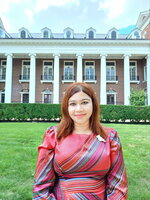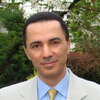Spring 2025 Event Archive
David Roediger, "Education of an Ordinary White," Unit Spring Symposium on March 27.
David Roediger, "Education of an Ordinary White," Unit Spring Symposium on March 27.

Nestled amongst the Finger Lakes in upstate New York, the summer session of the School of Criticism & Theory (SCT)
At the Cornell summer School of Criticism and Theory in summer 2025, I participated in Professor Fadi Bardawil’s Terms of Vio


The Unit for Criticism and Interpretive Theory offers a series of public lectures on the history of critical theory every fall semester.
100 English Building
608 South Wright Street
Urbana, Illinois 61801